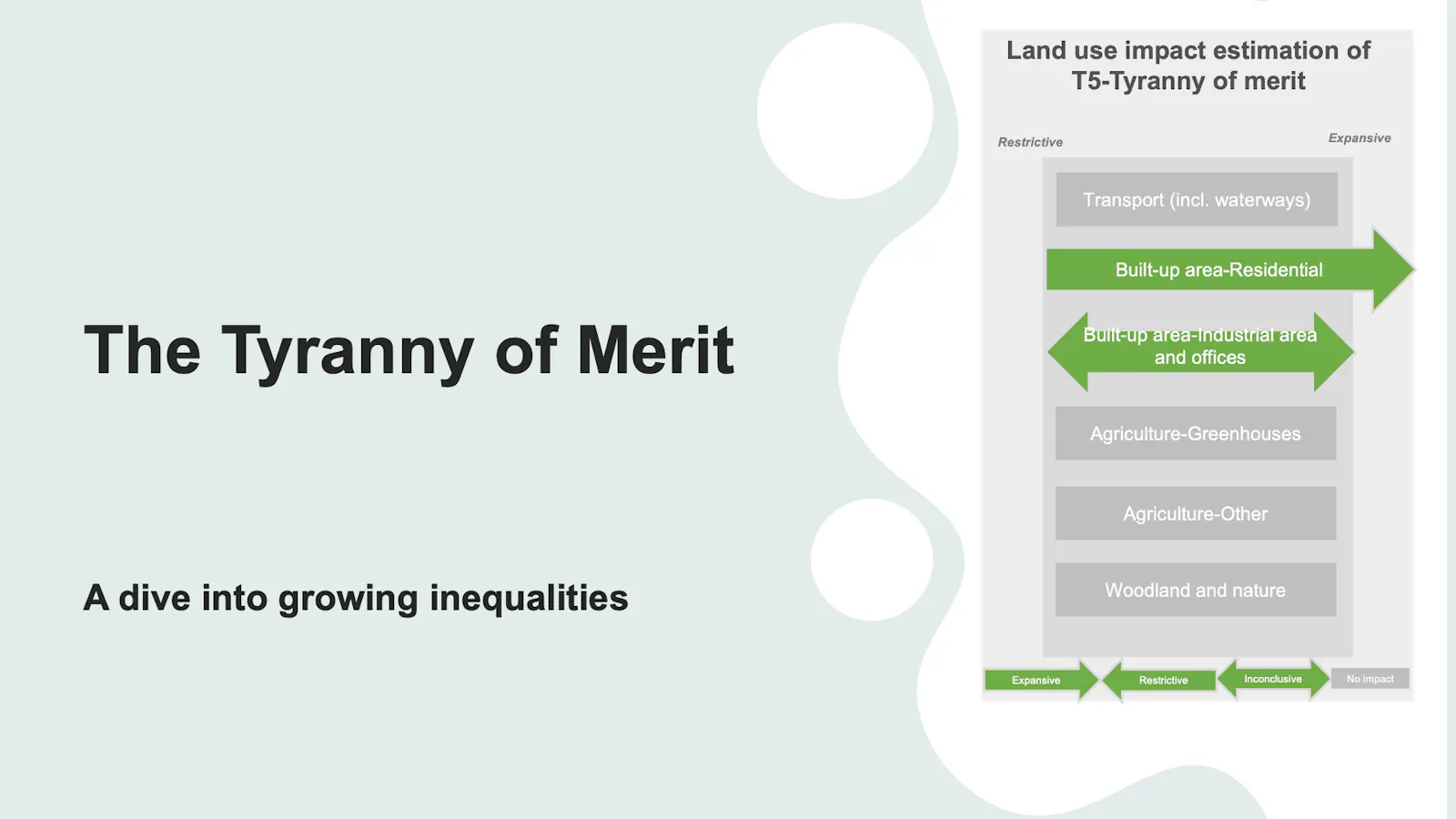The Tyranny of Merit: A dive into growing inequalities
November 2023

In Michael Sandel's thought-provoking book ‘The Tyranny of Merit’ (Sandel, 2020) a powerful idea is explored - the concept of the Tyranny of Merit. It sheds light on the negative consequences of a merit-driven economy and politics. The core message of this concept is that meritocracy, as it exists today, often marginalises certain social groups and ignores the systemic challenges they face. Sanders critiques meritocracy, particularly in relation to success: The idea of meritocracy often demoralises the less successful who have not managed to rise to the top, attributing this to personal failure rather than general structural problems, unlike the successful ones, who believe their success is primarily due to their own efforts, disregarding the systemic advantages that helped them.
In many foresight studies, the tyranny of merit is seen as a trend shaping future developments. This raises the question, what it means for spatial development in Europe.
This blog post delves into the tyranny of merit as a development trend, its various components, and its implications, highlighting the increasing income inequality, inequality of opportunity, and inequality in the labour market. We will also discuss the potential impact on land use and how it intersects with other trends and policies. This is based on a study currently conducted for Ministry of Interior and Kingdom Relations of The Netherlands (Opens in a new window).
To get a better grip on possible spatial implications, let´s focus on three elements of this trend and their possible implications for land use changes.
Trend Element 1: Income Inequality
Income inequality is a pressing issue on both a national and global scale. The merit-based system often perpetuates the economic divide. Social groups with better economic prospects, such as upper-middle- and higher-class families, continue to accumulate wealth while those from disadvantaged backgrounds struggle to make ends meet. This division can manifest territorially, creating pockets of poverty in specific regions or neighbourhoods.
To read this post you'll need to become a member. Members help us fund our work to ensure we can stick around long-term.
See our plans (Opens in a new window)
Already a member? Log in (Opens in a new window)


